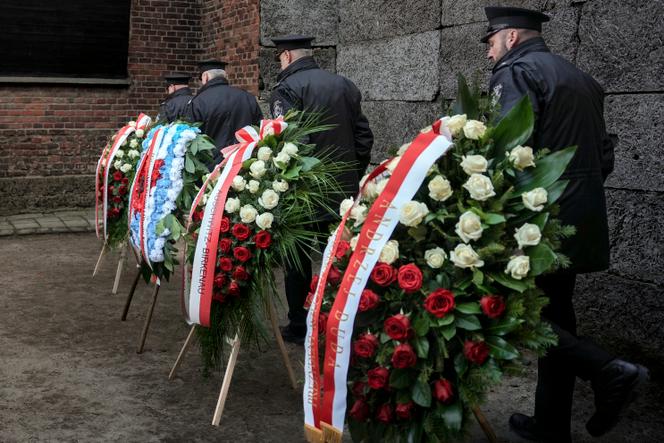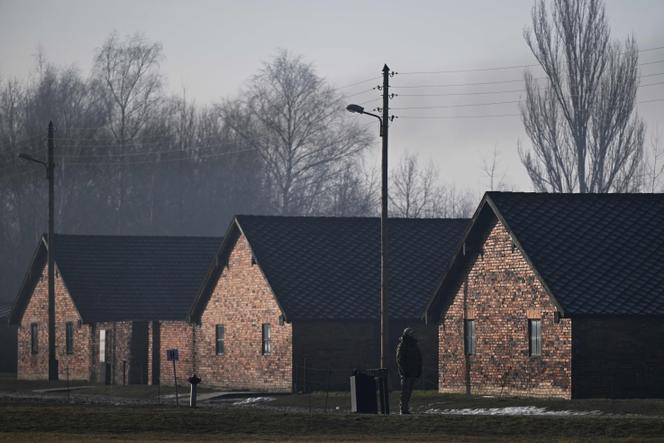


The world marks the 80th anniversary of the discovery of Auschwitz on Monday, January 27, with some of the few remaining survivors attending ceremonies at the site of the notorious Nazi death camp. Auschwitz was the largest of the extermination camps and has become a symbol of Nazi Germany's genocide of six million European Jews, one million of whom died at the site between 1940 and 1945, along with more than 100,000 non-Jews.
On Monday morning, Polish President Andrzej Duda laid flowers at the site alongside survivors, some wearing scarves in the blue-and-white stripes of their death camp uniforms.
Around 50 survivors are then expected at the main commemoration from 3 pm local time, outside the gates of Auschwitz II-Birkenau alongside dozens of leaders, including Britain's King Charles III and French President Emmanuel Macron. German President Frank-Walter Steinmeier and Chancellor Olaf Scholz are both expected, as well as Israeli Education Minister Yoav Kisch.
"This year we will focus on the survivors and their message," Auschwitz Museum spokesman Pawel Sawicki told Agence France-Presse. "There will not be any speeches by politicians." Organizers said it could be the last major anniversary with such a large group of survivors. "We all know that in 10 years it will not be possible to have a large group for the 90th anniversary," Sawicki said.
Auschwitz was created in 1940 using barracks in Oswiecim, southern Poland. Its name was Germanised into Auschwitz by the Nazis. The first 728 Polish political prisoners arrived on June 14 of that year.

On January 17, 1945, as Soviet troops advanced, the SS forced 60,000 emaciated prisoners to walk west in what became known as the "Death March".
From January 21-26, the Germans blew up the Birkenau gas chambers and crematoria to hide their crimes and withdrew as Soviet troops approached. On January 27, Soviet troops arrived, finding 7,000 survivors. The day of the Red Army's entry into the camp has been designated by the United Nations as Holocaust Remembrance Day.
Until its invasion of Ukraine in 2022, a Russian delegation had always attended the annual liberation ceremony but Moscow will be barred again this year. In comments marking the anniversary, Ukrainian President Volodymyr Zelensky said the world must unite against evil. "We must overcome the hatred that gives rise to abuse and murder. We must prevent forgetfulness. And it is everyone's mission to do everything possible to prevent evil from winning," he said.
There has also been controversy following rumors about the possibility that Israeli Prime Minister Benjamin Netanyahu could attend the ceremony. The International Criminal Court last year issued an arrest warrant for Netanyahu on suspicion of crimes against humanity and war crimes over the war in Gaza.
After a request from Duda, the Polish government confirmed last month that it would not arrest Netanyahu if he were to visit, even though the Israeli leader has not expressed any intentions to attend.
